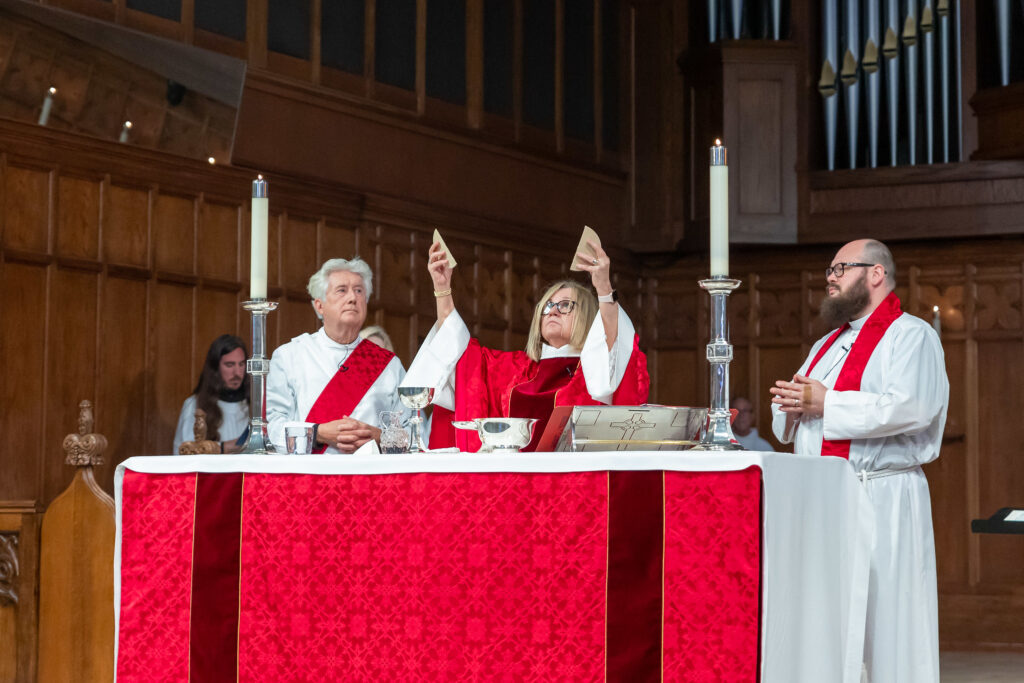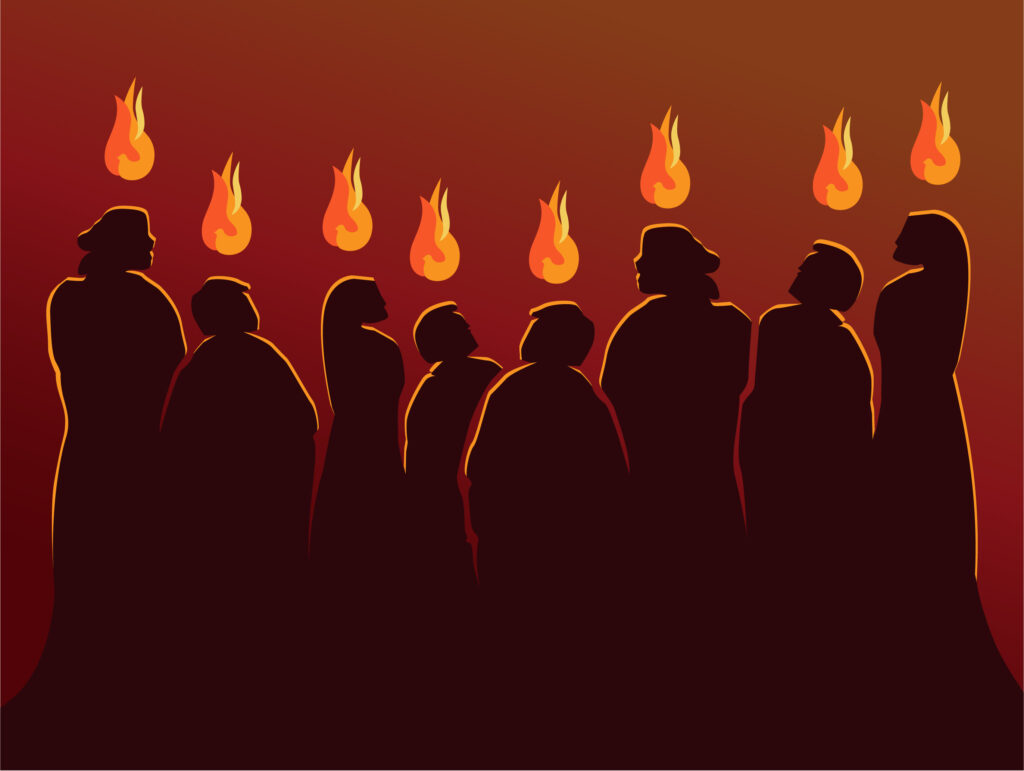
Hello St. Paul’s,
This Sunday we will celebrate Pentecost. It’s a big deal: we think of Pentecost as the birthday of the Church (not just St. Paul’s but the entire Christian church); it’s one of the five occasions in the year recommended for baptism; and it marks the end of the Easter season and the beginning of summer. But let’s back up a bit: what does Pentecost mean?

The Greek word actually means a celebration of 50. On the 50th day after Passover – after a “week of weeks”, the Jewish people celebrate the festival of Shavuot. The celebration was adopted by Christians in recognition of the story in the second chapter of Acts, which tells us that the disciples gathered in Jerusalem to celebrate Pentecost, 50 days after the Passover when Jesus was crucified, along with thousands of other visitors and pilgrims. Tongues of fire appeared over their heads in the midst of a mighty wind, and each of the disciples began to speak in a different language. Scripture interprets this event as a visitation of the Holy Spirit, the advocate or comforter that Jesus had promised his friends before his ascension (we celebrate the Ascension of Jesus 40 days after Easter).
From this moment, the disciples were given the ability to communicate the good news of the resurrection to people from every nation under heaven, and so the missionary Church was born. In recognition of this dramatic event, we customarily wear flame-red on Pentecost and often hear Scripture lessons in multiple languages.
Our mother church, the Church of England, also calls Pentecost Whitsunday, and a tradition of Whitsun fairs and celebrations goes back to medieval times. Whitsun was one of three times in the year when serfs had a break from working their lord’s land; it became the occasion for regional hiring fairs and opportunities to change jobs. The tradition of a Whitsun public holiday continued until the 1970’s, when it was officially replaced by the Spring Bank Holiday on the last Monday of May. The word Whitsun is derived from White Sunday, referring to the white robes worn by those who are baptized on this day.

So there is much to celebrate on Pentecost Sunday: a birthday; a baptism opportunity; an ancient festival that connects us with both our Jewish ancestors and our Anglican forebears; and above all the gift of God’s Holy Spirit, who remains with us today, inspiring, encouraging, and firing us up to share the good news of Jesus.
Fun fact: the term Comforter was used in the King James Bible to refer to the Holy Spirit. At that time, a Comforter was the word used for a cattle prod (from a Latin word meaning to strengthen or push). So the Holy Spirit’s function is not only to comfort us with the continuing presence of God, but also to encourage and urge us on in our spiritual journeys.

Remember to wear red on Pentecost Sunday, and let Brooks know in advance if you’d like to read some Scripture in a language other than English, adding to the “holy cacophony” of the day.
See you on Sunday!
Your sister in Christ,
Penny

